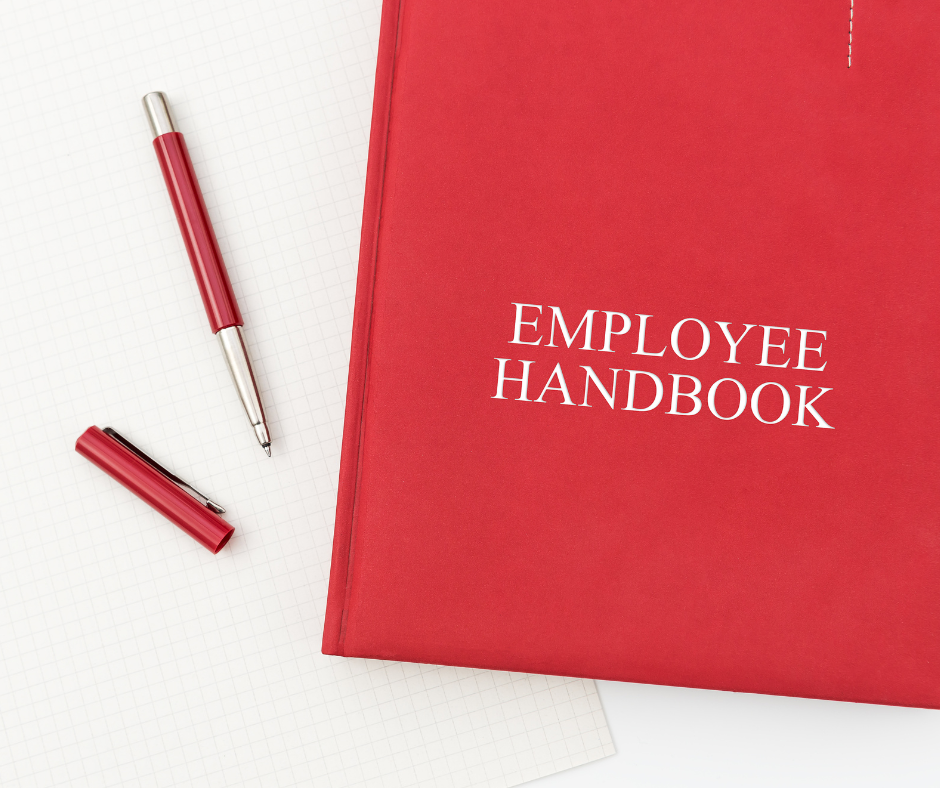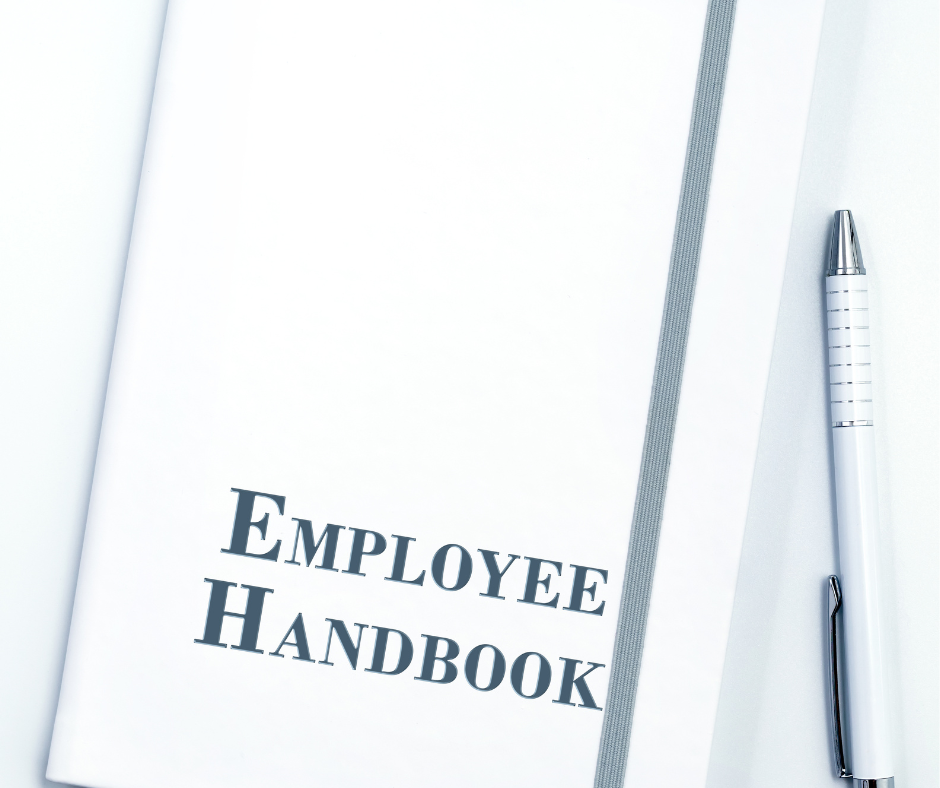
Key Takeaway:
- Employee handbooks are crucial for religious organizations to establish workplace standards that respect employees’ religious beliefs and meet legal accommodation requirements.
- Grantmaking organizations need employee handbooks to ensure compliance with grant requirements and clearly define responsibilities for grant management and implementation.
- Civic organizations can benefit from employee handbooks to establish ethical guidelines for community service, ensure equitable workplace practices, and foster a culture of inclusion and diversity.
- Professional organizations require employee handbooks to set professional standards and expectations, provide policies for career development and advancement, and establish clear guidelines for workplace conduct and performance.
Do you have trouble understanding the employee handbook for your religious, grantmaking, civic, professional, or similar organization? This article explains the common components and purposes of employee handbooks, providing the clarity you need to ensure an effective and compliant handbook.

Importance of Employee Handbooks for Religious Organizations
Religious organizations must stress the importance of employee handbooks. It’s key to understand the value of religious beliefs and practices in the workplace. This promotes better communication and understanding of religious accommodations. Laws regulating such accommodations must also be included in the handbook.
Significance of Religious Beliefs in the Workplace
The spiritual beliefs held by employees can have a profound impact on their workplace performance, work ethics, and overall job satisfaction. Consequently, it is crucial for religious organizations to embrace and accommodate these beliefs through employee handbooks that outline the organization’s approach towards providing flexible work arrangements, accommodating religious observances and creating a non-discriminatory environment. Such handbooks serve as an essential guideline to support all forms of religious observance whilst preserving the organization’s culture.
Effective communication between the organization and its workforce through employee handbooks ensures transparency of policies and procedures. As such, it strengthens mutual trust whilst mitigating conflicts arising from misunderstandings of expectations due to irrelevant proposals in the handbook. It serves as a benchmark document that promotes consistency in human resources practices whilst safeguarding legal reception issues in case of claim litigations within the workplace.
In addition to laying out guidelines for religious organizations’ worksites, employee handbooks provide insights into organizational structure, administration rules, safety regulations, fair treatment obligations amongst others. It enlightens new hires about Company Vision-Mission Statements which enhances their sense of purpose and instills confidence in their employment stability. Pro Tip: Regular revisions should be made to employee handbooks due to constant legal changes that could affect compliance with administrative acts and judgments. Legal consultation should also be employed when drafting or revising handbook policies concerning the employees’ privacy rights or discriminatory practices against protected-class groups such as disabled individuals or women. Check out this resource on creating employee handbooks for private household companies. Why make accommodations for different religions when you can just require everyone to convert to your own?
Legal Requirements for Religious Accommodation
Religious organizations must comply with legal obligations to provide reasonable accommodations to employees for their religious beliefs and practices. These obligations extend to all aspects of employment, including recruitment, hiring, training, and promotion. Employers must consider requests for accommodation in good faith and engage in an interactive process with the employee. Accommodations can include flexible scheduling, dress code exemptions, and time off for religious observances.
Employers should also establish clear policies on religious accommodations in their employee handbooks. This promotes transparency and consistency in handling such requests and can reduce the likelihood of discrimination claims. Properly drafted policies can also educate managers and employees on their rights and responsibilities when seeking or providing an accommodation.
Unique details could include a reminder that employers cannot discriminate against job applicants or employees based on their religion or lack thereof. Religious harassment is also illegal under federal law, prohibiting unwelcome comments or actions that create a hostile work environment based on religion. To promote successful implementation of these policies, employers should include regular training for managers and supervisors on how to handle religious accommodation requests properly. This training can help prevent misunderstandings regarding accommodations while promoting a culture of inclusion within the organization.
In summary, it is imperative that employee handbooks for religious organizations contain clear policies regarding legal requirements for religious accommodation. By creating comprehensive guidelines for accommodation procedures and conducting regular training sessions on them, employers can minimize the risk of discrimination claims while fostering an inclusive workplace environment.
Without a handbook, grantmaking organizations might as well be handing out grants in a game of telephone.

Importance of Employee Handbooks for Grantmaking Organizations
Grantmaking organizations need employee handbooks for compliance and clarity. Guidelines and protocols define proper grant requirements, and clear up any confusion about roles. Let’s explore the benefits of these handbooks. Their focus? Grant compliance and roles & responsibilities.
Ensuring Compliance with Grant Requirements
Ensuring adherence to the terms and conditions of grants is crucial for grantmaking organizations. Employee handbooks play a pivotal role in this aspect, as they clearly outline the organization’s policies, procedures and expectations. These handbooks should include information on how grants should be utilized, tracked, and reported. This helps to ensure that employees understand their roles and responsibilities in ensuring compliance with grant requirements.
Moreover, policies regarding conflicts of interest, data protection, transparency, and anti-discrimination can also be included in employee handbooks. Thus it becomes essential to review these policies periodically to ensure they are compliant with current regulations. Grantmaking organizations that fail to abide by grant requirements face potential financial penalties or even legal action. Moreover, they may lose future funding opportunities due to a lack of trustworthiness. Therefore it is imperative that organizations use employee handbooks to make sure employees are aware of their obligations towards compliance with grant conditions and policies.
Pro Tip: Regularly updating the employee handbook with new compliance guidelines can help prevent errors while ensuring clarity around regulations among employees. Clear roles make happy employees, and happy employees make even happier donors.
Clarifying Roles and Responsibilities
It is crucial for grantmaking organizations to establish clear guidelines and expectations regarding job duties and responsibilities. By implementing an effective system of role clarification, companies can prevent confusion and minimize the risk of workplace misconduct. An accurate description of employee roles and responsibilities will lay a foundation that supports employee growth, professional development, and overall organizational success. In addition to providing clarity on what is expected from each employee within the organization, this type of messaging also promotes accountability and transparency across teams. Employees are more likely to perform their best when they know exactly what is required of them and how their work contributes to broader organizational objectives. Furthermore, clarifying roles in the workplace increases cooperation between employees in accomplishing common goals with less conflict. Mutual respect is fostered if each team member respects the unique role his or her colleagues play in achieving project outcomes.
An example illustrates this point: A small nonprofit organization had recently hired a new administrative assistant who was uncertain about her role. After reading through the company’s updated employee handbook that clearly defined all job descriptions, she could understand who was responsible for certain tasks like follow-up emails and scheduling events; she felt more comfortable communicating with other members who don’t partake in those positions.
By improving communication through precise coordination of roles & responsibility structure – Grantmaking organizations can achieve higher levels of productivity while also creating fairness among team members’ duties. Employee handbooks for civic organizations: because rules are meant to be followed, not broken, unless you’re a politician.

Importance of Employee Handbooks for Civic Organizations
Employee handbooks for civic organizations such as yours are essential. They ensure fair and equitable practices at work, and set ethical guidelines for community service. These handbooks are important for setting expectations, handling complaints and defining workplace values.
Let’s take a look at two of its subsections:
- Establishing Ethical Guidelines for Community Service
- Ensuring Fair and Equitable Workplace Practices
Establishing Ethical Guidelines for Community Service
Developing and Implementing Moral Standards for Public Affairs
Creating moral benchmarks to guide public service is essential yet challenging. Civic organizations must establish guidelines that align with their primary values, mission, and organizational culture. These standards will serve as a framework for all employees in carrying out the organization’s mission efficiently and effectively.
Having clear ethical codes enables civic organizations to manage risks, discourage unethical behavior, and maintain public trust. Ethical guidelines enable employees to act in accordance with the organization’s principles of integrity, fairness, honesty, accountability, confidentiality, and respect. It is crucial to ensure that these ethical standards accommodate diversity and inclusion within the workplace. Adopting moral competencies eliminates bias in decision-making processes and provides an equal platform for all employees regardless of their background or beliefs.
Being part of a civic organization requires maintaining high ethical standards. To avoid legal issues that could damage reputation or harm individuals’ lives financially or emotionally, it is crucial to implement effective ethical frameworks. Therefore civic organizations need to prioritize developing these guidelines if they haven’t already done so.
Treating employees fairly is just common sense, unless of course you’re a unicorn – then you can do whatever you want.
Ensuring Fair and Equitable Workplace Practices
Having policies that promote impartial and just practices in the workplace is important for any organization. Establishing protocols that ensure Equitable Workplace Practices is necessary to prevent discrimination and create a harmonious workforce. By setting transparent procedures, organizations can limit misunderstandings and conflicts, as well as provide a fair and safe environment for employees. Proper documentation of these policies within Employee Handbooks makes them easily accessible to both employers and employees. This not only strengthens the validity of those practices but also provides tools for effective communication throughout the organization. Organizations need to make sure that they keep updating their handbooks for management of companies and enterprises according to changing laws and policies. Pro-Tip: Including examples of practical applications of the policies within Employee Handbooks can generate better compliance with Fair and Equitable Workplace Practices policies. For companies in the securities, commodity contracts, and other financial investments and related activities industry, it is important to have comprehensive employee handbooks that encompass the unique policies and regulations of the industry. Employee handbooks for professional organizations: Because ‘winging it’ isn’t a viable HR strategy.
Importance of Employee Handbooks for Professional Organizations
An employee handbook is essential for any professional organization. It sets professional standards and provides expectations. To make sure your company succeeds, the handbook is a valuable resource for your employees. The handbook has two sub-sections:
- Setting Professional Standards and Expectations
- Providing Policies for Career Development
They inform staff of the company values and show how to reach career success.
Setting Professional Standards and Expectations
Professional Organizations need well-defined, established standards to ensure uniformity and effective operations. An Employee Handbook’s semantic variation can set professional standards and expectations by clearly outlining policies/procedures, behavior rules, ethical principles, and performance expectations. This promotes organizational clarity and helps employees understand their role in fulfilling professional obligations.
The handbook’s semantic significance is the foundation for a well-managed workforce, allowing an agency to establish work-related expectations while providing clear guidance on best practices. Ultimately, it can enhance overall organizational performance through reliable communication channels where employees are confident about what management expects of them. By placing emphasis on employee communication and setting clear guidelines with a corresponding interpretation of policies / procedures outlined in the handbook’s semantic variation; organizations can create a shared culture that encourages professionalism within departments/agencies. Policymakers are encouraged to engage workers through staff meetings or other forums for discussion when changes/updates come into play. As such, when providing suggestions regarding an employee handbook’s Semantic NLP variation for Professional Organizations:
- Incorporate graphics/design elements bringing visual aids to reinforce messages conveyed in the absence of text-heavy documents
- Consider implementing online accessibility to ensure easy access that makes updates accessible seamlessly
- Consider including company mission statements/team-building activities promoting transparency that fosters trust among workers while inviting feedback from all parties involved
Who needs a career coach when you have an employee handbook full of policies for career development?
Providing Policies for Career Development
Creating a clear path for growth and personal advancement within a professional organization is essential to promote employee satisfaction and retention. Offering policies that foster career development can incentivize employees to stay committed to their role while enhancing their skills. Providing opportunities for training, mentoring, and recognition of performance can elevate the competence of the workforce and ultimately benefit the organization’s success. By developing guidelines identifying paths for career progression through training programs, certification processes, or policy advancements, companies can provide goals for employees to work towards. Additionally, creating communication avenues for feedback between management and staff can offer valuable insights into areas where employees may require further development or guidance. For more information on creating effective employee handbooks for professional, scientific, and technical services companies, visit this resource. It’s imperative that companies recognize individual aspirations as it relates to long-term company objectives. These policies must be continuously evaluated and improved upon by administration to ensure alignment with rapidly evolving trends in high-performing work environments. Don’t let your company stagnate with outdated practices. Encourage innovation, support growth opportunities & have proficient leadership in place to achieve long term goals.
As organizations continuously adapt to new operational strategies, remaining current requires an acknowledgement of the changing dynamics amongst both internal personnel habits and external industry trends. Failure to implement new growth policies will inevitably result in lower retention rates and potentially inferior morale among the workforce. By providing a clearly defined path through policy-making that encourages personal progress toward achieving company objectives guarantees continued organizational success.
Five Facts About Employee Handbooks for Religious, Grantmaking, Civic, Professional, and Similar Organizations Companies:
- Employee handbooks for such organizations typically contain a statement of the organization’s mission, values, and culture. (Source: Insperity)
- Employee handbooks for these organizations often outline policies related to areas such as dress code, time off, and communication. (Source: SHRM)
- Religious organizations may have specific policies related to religious practices, such as dress or prayer allowances. (Source: HR Daily Advisor)
- Grantmaking organizations may have policies related to grant eligibility, application requirements, and reporting procedures. (Source: Council on Foundations)
- Employee handbooks can serve as a valuable tool for ensuring compliance with state and federal employment laws. (Source: Entrepreneur)
FAQs about Employee Handbooks For Religious, Grantmaking, Civic, Professional, And Similar Organizations Companies
What is an employee handbook for Religious, Grantmaking, Civic, Professional, and Similar Organizations companies?
An employee handbook for Religious, Grantmaking, Civic, Professional, and Similar Organizations companies is an important document that outlines the rules, policies, and procedures for employees working in these types of organizations. It covers everything from company culture and values to employee benefits and conduct.
Why do companies need an employee handbook for Religious, Grantmaking, Civic, Professional, and Similar Organizations?
Companies need an employee handbook for religious, grantmaking, civic, professional, and similar organizations because employee handbooks provide a clear understanding of what is expected of employees in terms of behavior, performance, and responsibilities. They also promote consistency in the application of company policies and procedures, which creates a positive work environment and helps to prevent misunderstandings and disputes.
What should be included in an employee handbook for Religious, Grantmaking, Civic, Professional, and Similar Organizations companies?
An employee handbook for Religious, Grantmaking, Civic, Professional, and Similar Organizations companies should include information on company culture, performance expectations, benefits, compensation, leave policies, employee conduct, and any legal or regulatory requirements unique to these types of organizations.
How often should an employee handbook for Religious, Grantmaking, Civic, Professional, and Similar Organizations companies be updated?
Employee handbooks for Religious, Grantmaking, Civic, Professional, and Similar Organizations companies should be reviewed and updated on a regular basis to reflect changes in company policies, employment laws, and industry regulations. Organizations should aim to update their handbooks at least once a year, but more frequent updates may be necessary if significant changes occur.
Can an employee handbook for Religious, Grantmaking, Civic, Professional, and Similar Organizations companies be used as a legal document?
An employee handbook is not a legal document but can be used as an important resource in legal disputes or claims. Organizations should include a disclaimer stating that the handbook is not a contract and that policies and procedures may be subject to change.
Who should be involved in creating an employee handbook for Religious, Grantmaking, Civic, Professional, and Similar Organizations companies?
Creating an employee handbook for Religious, Grantmaking, Civic, Professional, and Similar Organizations companies should be a collaborative effort between the HR team, legal counsel, senior management, and other stakeholders. It should be designed to reflect the values and culture of the organization and be tailored to the unique needs of the workforce.